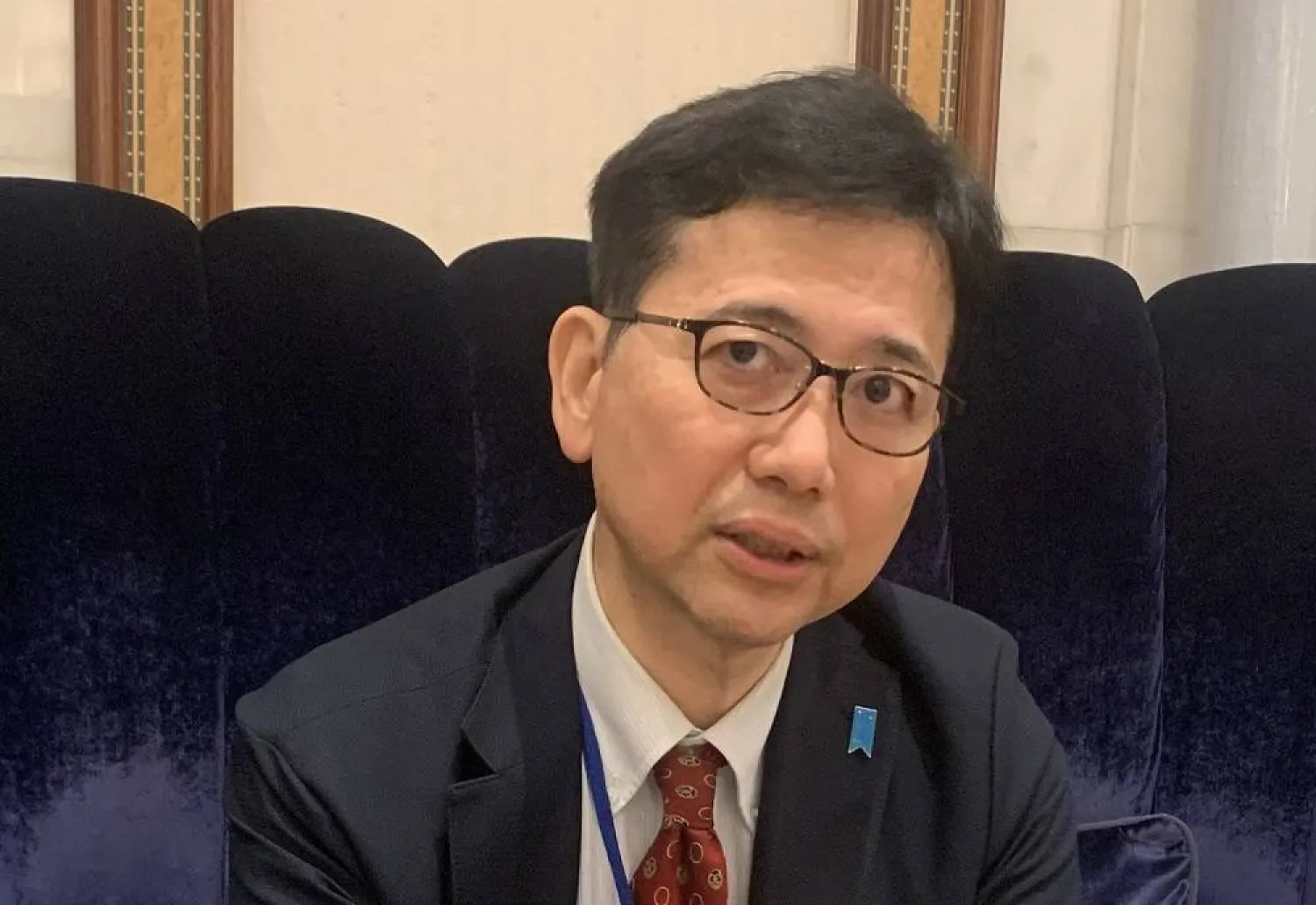Saudi Arabia and Japan are witnessing significant developments in their economic and strategic relations through the implementation of the Saudi-Japanese Vision 2030.
This vision encompasses various initiatives in the energy sector and cooperation between the two nations in enhancing the infrastructure for petroleum industries, natural gas production, clean energy, energy efficiency, and the development of human resources in the field of nuclear energy.
Speaking to Asharq Al-Awsat, Japanese Cabinet Secretary for Public Affairs Noriyuki Shikata stressed the significance of strong economic collaboration between Saudi Arabia and Japan as a crucial driver for the prosperity and stability not only in the region, but also on a global scale.
Shikata also pointed out that Saudi Arabia is Japan’s primary source of oil, but his country is eager to explore new fields such as carbon-free energy, including hydrogen and ammonia.
He highlighted the significant potential for producing blue or green hydrogen in the Kingdom in the future.
“We are aware that the Kingdom of Saudi Arabia is diligently working towards its futuristic Vision 2030, aiming to enhance the reputation and diversify Saudi industries,” Shikata told Asharq Al-Awsat.
“From this perspective, we see it as a fantastic opportunity for Japanese businessmen to visit and understand the developments in the Kingdom,” he added.
“Furthermore, we also hope to witness increased investments coming from Saudi Arabia into Japan,” noted the official.
Speaking of Saudi Arabia’s diplomatic relations with countries, particularly the recent developments in its ties with Iran, Shikata stressed that Tokyo has welcomed the improvement between the two nations.
Tokyo is hopeful that this positive development could pave the way for normalization of relations and a resolution to the situation in Yemen, he remarked.
“We have initiated engagement in some recovery projects in Yemen through the UN,” he revealed.
“However, it has not been easy to reach a position or resolution regarding sending our ambassador to Yemen, as our diplomatic personnel and ambassador have been stationed in Riyadh since 2014-2015,” he added.
Regarding Japan’s diplomatic efforts to contribute to peace and stability in the region, Shikata explained that it has been committed to being constructive in the peace process in the Middle East from the outset.
He emphasized that Japan opposes any unilateral changes to the situation by any party, and highlighted that his country has been actively engaged in providing assistance to refugees through humanitarian aid programs and support systems.
“We hope for a peaceful resolution to the issues, and we aspire to be supportive of any initiative,” said Shikata.
“We are aware of the efforts made by Saudi Arabia to resolve the situation, and we are very keen on supporting its efforts in this regard,” he asserted.









